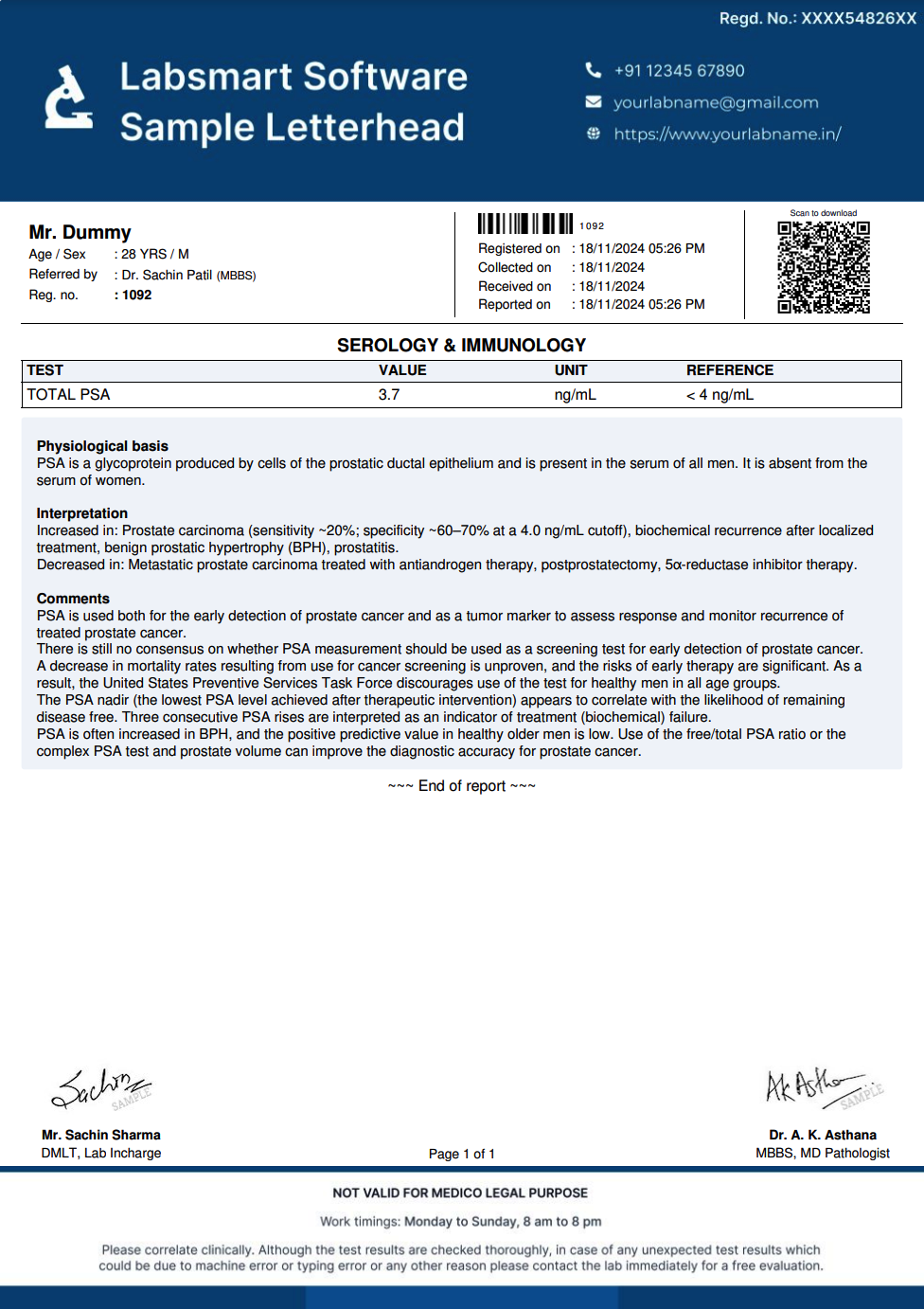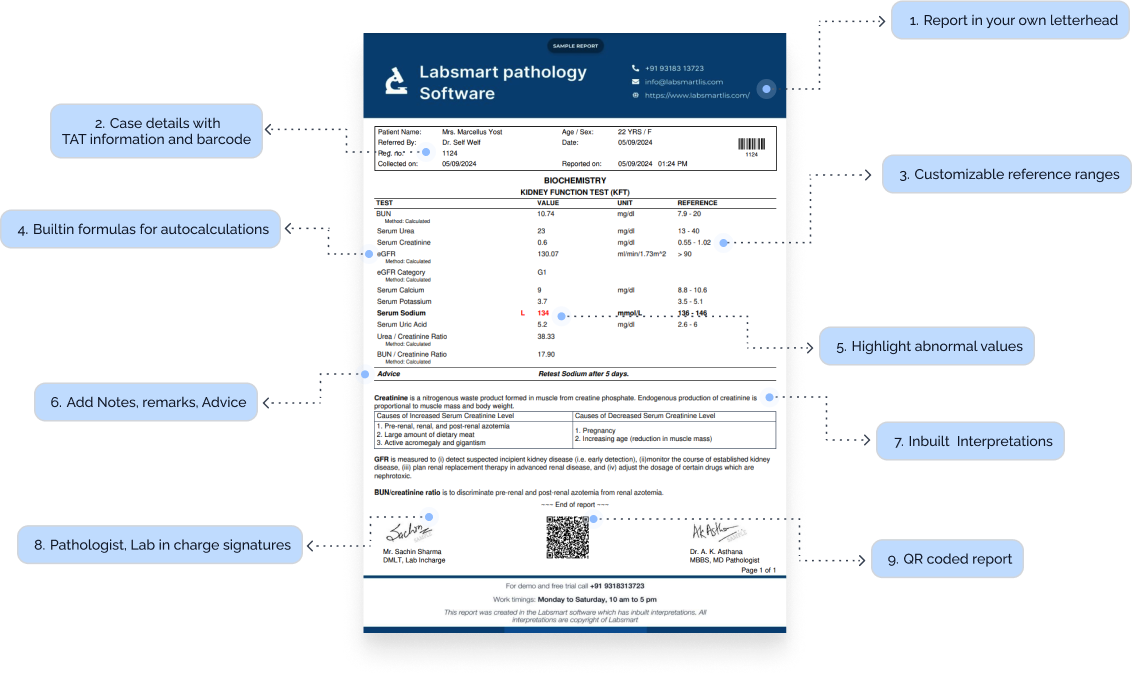What is Total PSA ?
The Total PSA (Prostate-Specific Antigen) test is a blood test used to measure the level of PSA, a protein produced by the cells of the prostate gland. PSA is naturally present in small amounts in the blood, but elevated levels can indicate potential issues with the prostate, such as benign prostatic hyperplasia (BPH), prostatitis (inflammation of the prostate), or prostate cancer. This test measures the total PSA in the bloodstream, which includes both free PSA (not bound to proteins) and PSA bound to other proteins. Doctors often use the Total PSA test as a screening tool for prostate health, particularly to detect early signs of prostate cancer in men who may be at higher risk due to age or family history. It is also commonly used to investigate symptoms like frequent urination, difficulty in urinating, or pelvic discomfort. In men undergoing treatment for prostate cancer, the Total PSA test helps monitor recovery and detect potential recurrence. While the test provides valuable insights, elevated PSA levels are not definitive for diagnosing prostate cancer and often require additional tests or evaluations for confirmation.
Total PSA Report Format: Breakdown
Here’s what an ideal Total PSA report format should include:
Header Information:
- Patient Details: Full name, Age, Gender, and ID.
- TAT information: Timestamp for both sample collection and report generation.
- Doctor's Information: Name of the referral doctor, if applicable.
Test Results Section:
-
Patient's results
As obvious as it is, a test report should definitely have the patient's test result.
-
Result's Unit
The unit of the test result must be mentioned correctly in the report. Total PSA test is generally reported in “ng/mL”
-
Total PSA Normal Value / Reference Range
The report must have the normal Total PSA range. It can differ slightly based on the reagents used by the lab and other internal factors, but common Total PSA ranges are:
For male, 0 -100 years of age: < 4 ng/mL For female, 0 -100 years of age: < 0.5 ng/mL
Interpretations
Nowadays, most labs prefer to add interpretations to the reports, making the report more patient-friendly. Labsmart software has interpretations of all routine test pre-filled in the software.
Footer Section:
-
Certifications:
Display any relevant accreditations (e.g., NABL, ISO), adding to your lab's credibility.
-
Pathologist and technician signature:
It's mandatory to add a Pathologist and technician signature to the report.
Total PSA Interpretation
In Labsmart software, this is the inbuilt interpretation for Total PSA
Importance of adding interpretation to reports:
It's very helpful to add interpretation in reports as it makes the reports more patient friendly and also helpful to doctors in some cases. Moreover, presently most labs prefer providing reports with interpretation. Thus, adding interpretation to report will help your lab stay at par with other competitor labs.
Labsmart software
(With Interpretation and auto calculations)
- Billing
- Reports with Interpretation
- Auto calculation where needed
- Check daily business
- WhatsApp reports
* Free plan available

1.5 Crore+
Reports printed & delivered online
1250+
Labs Active
10+
Countries
Total PSA MS Word format
Download the Ms word editable Total PSA report format for offline reporting.
Download word format





